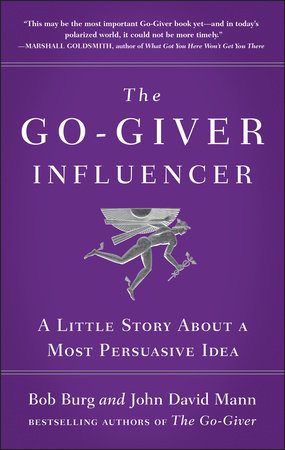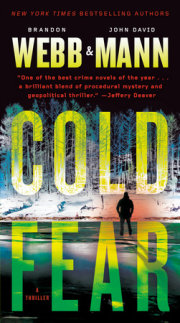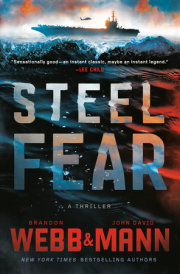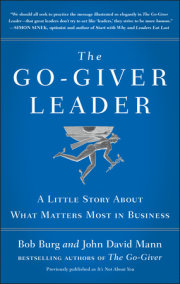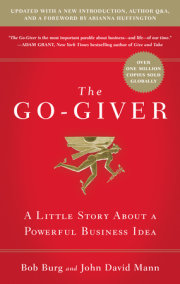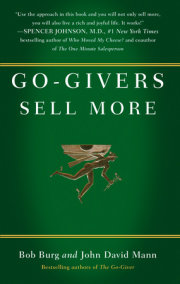1: Jackson
Jackson Hill looked like a man waiting to see the executioner. “Are you sure you won’t have some coffee?” The young woman at the reception desk had already offered him coffee, a soft drink, and water, in that order. “I’m good. Thanks, though.” He liked her energy. The nameplate on her desk said MIRABEL. Perfect, thought Jackson. That’s exactly what I need today. A MIRACLE. He glanced at the wall clock. Ten after. Eleven, now. It had taken three weeks just to get this appointment. Three weeks he couldn’t afford to wait. And now the appointed hour had come . . . and here he was, still waiting. He suppressed the impulse to look at the clock again. After three weeks of waiting, another ten minutes—no, eleven—shouldn’t matter, right? “Yes . . .” Mirabel was speaking into her headset now. “Okay. I’ll send him in.” She smiled at Jackson and said, “Ms. Waters can see you now. It’s straight down the hall, on the right.” Finally. As Jackson walked past her desk, Mirabel leaned forward a little and spoke in a stage whisper. “You’re going to love Ms. Waters. She’s really nice.” Jackson hoped that was true.
As he took his seat, Jackson noticed a photo on Ms. Waters’s desk of a young girl (twelve, maybe?) curled around a beautiful Russian Blue cat, looking at the camera with big solemn eyes that said, This is MY cat. Nobody messes with MY cat. The elegant Blue stared at the camera, too, with haunting green eyes that said, This is MY human. Nobody messes with MY human. Jackson smiled. Maybe this meeting would go well after all. “So,” the woman said, still looking down at the papers on her desk. “Mr. Hall.” “Hill,” said Jackson, already feeling defensive. She looked up. “Sorry?” “It’s Hill. Jackson Hill.” “Of course. Mr. Hill. Jackson. So,” she sat back in her chair to give him her full attention. “Tell me about your business.” Showtime. “Sure. So, we started with our first line of dry dog food, five years ago. That was just for dogs. All different sizes and ages. And then within six months, we added a cat line . . . ,” and he went on, just as he’d rehearsed it, chronicling how over the past five years he’d built his fledgling business into a respected brand. Of course, when he used the words “we started” and “we added,” he was really talking about just himself, Jackson, working solo in his cramped little kitchen, late into the nights and over long weekends, experimenting, crafting, adjusting. Only the purest, as his company motto went, only the freshest, only the best. Jackson had in every sense built his business from his kitchen table. “Quite the entrepreneur,” said Ms. Waters. He shifted in his seat, unsure exactly how to respond to that. Jackson had never intended to be a business owner. All he wanted was to see animals have the best food to eat. He’d just had to become an entrepreneur in order to do it. Six years ago he was working a sales job for an electronics outlet (and hating it), cooking for himself, Walt, and Solomon. When he shared his natural dog food concoctions with a few friends who also lived with dogs, word got out. By the time he let go of his sales job to focus full time on his pet food line, he had more than a hundred customers—and that widely respected brand. All of which could come crashing down exactly one week from today if he didn’t get this contract. No, not could. All of which would come crashing down. “So, you distribute to, what, now”—she was glancing down again, running her finger down the sheet at the top of her little stack of papers—“two states?” “Three,” he said. “Almost four,” he added, and immediately regretted it. Almost four? What, like holding four fingers up high and proudly saying, “These many!” You’re in business now, Jackie, as Walt would say. You gotta act like it. “Three,” said Ms. Waters, nodding to her papers. “Almost four.” She looked up and leveled her gaze directly at Jackson. “So tell me: Why do we want to carry you?” Jackson winced. He knew she meant to say, “carry your products,” right? But intentionally or not, she’d certainly nailed it, hadn’t she. If—if—they gave him this contract, they would indeed be carrying him. He took a breath. “It’s simple, really. I love animals. Adore them. Big, small, two-day-old kittens, old hounds on their last legs, doesn’t matter what shape or size or breed or temperament, to me they are all, every one of them, the noblest, sweetest, kindest, most . . . well, most authentic creatures. I look at an animal like”—he almost said, Like your daughter’s cat, but would that be getting too personal?—“well, like any cat, any dog, and I think they were put here as emissaries of how we ought to be. Emissaries of heaven on earth.” Ms. Waters smiled thinly. “Hence, the name.” Jackson nodded. “Exactly. That’s how I see them.” She looked down at the papers again. “ ‘Angels Clothed in Fur.’ ” And up again at Jackson. “A somewhat unconventional name for a business.” “We’re a somewhat unconventional business,” he said, feeling defensive again. “Anyway, as I said, it’s simple. I want to reach more animals with the best the earth has to offer. Only the purest and freshest. That slogan—I really mean it. And if I can put my product in your stores, well, you can reach a lot more creatures than I can on my own.” Understatement of the week. Smith & Banks Pet Supply, the chain Ms. Waters represented, had stores in every state coast to coast. A massive footprint. Or should he say, pawprint. Ms. Waters glanced at her papers again, then back at Jackson and smiled once more, that thin smile that didn’t seem to give much away. “Well, I’ve looked through the materials you sent, and I have to say it’s impressive. We like it, and we like you. We are definitely interested in the possibilities.” Jackson’s heart leapt. He nearly leapt, too, right out of his chair. Impressive—we like it, and we like you. Wow! Then his head caught up. Hang on, did she just say, “definitely . . . possibilities”? Wasn’t that sort of like saying, “For sure . . . maybe”? “We think Angels Clothed in Fur could sit very comfortably on our shelves,” Ms. Waters was saying. “Just two points. You’d need to supply us on a national basis, of course. And we would want it to be an exclusive arrangement.” Jackson’s heart stopped. National? Exclusive? National distribution—that would mean he’d either have to ship his products clear across the country, which would be impossible, because part of his whole thing was their freshness and emphasis on locally grown ingredients . . . or he’d have to set up not one or two but at least a dozen separate production sites. Which would take an enormous investment. Which was completely out of the question. And, exclusive? Pull out of all his existing clients’ stores? Turn his back on all those relationships? It hurt even to think about it. “Okay,” he said, his heart racing, desperately hoping that she couldn’t see how rattled he was. “See, I was hoping to start out going into stores in four states, maybe five. I mean, that’s what we’re geared for at the moment.” “I understand,” she said. “But you understand, we’re a national chain. Providing only the purest, only the best in these five states over here, but not in those five states over there . . . well, would that be fair to our customers?” Jackson felt his face flush. Would that be a rhetorical question? he wanted to say, but he bit it back. Instead he just sighed. (Silently—he hoped.) “No, of course, I see your point. But I don’t see how . . .” He stopped. How did he plan to finish that sentence? The silence in the room felt positively chilly. He had to say something, but he didn’t dare explain his actual situation. Revenue from those early clients had allowed him take over an old out-of-business diner. With his own industrial kitchen, he had built out his pet food line and extended his sales to stores across the state. To extend that reach farther to cover three states—well, parts of three states—he’d had to set up a whole new separate production facility in the next state over so he could keep to his standards of freshness and local supply. But setting up and running a new plant from scratch was a lot harder than he expected. The financing he’d gotten to do it was drowning him. The bank had been patient for a year, but now he had to bring his account current, or they would call the loan and shut down his operation. A week from today. There was no way under the sun he could come up with the cash—but if he could show up with a large purchase order from a major national company, he was betting, that would halt the process and keep his doors open. A contract with Ms. Waters’s company, in other words, might just save him from going under. And at that thought, an idea slipped into his mind, so quietly that it took him a moment to realize it was sitting there waiting for him. “I understand what you’re saying,” he said. “That makes sense. I see that. Of course, to scale up on that level, I’d need some assistance.” For the first time since their meeting had begun, Ms. Waters looked ever so slightly taken off balance. “Assistance?” “Well,” said Jackson, “the entire continental United States, that’s a good deal of territory. Our whole thing is fresh and local. That’s more or less the heart of the brand. The brand you’d be featuring on your shelves. We’d need to put in place a network of kitchens—production centers. We have several now.” (He had two, barely.) “To supply nationwide, we’d need to set up, oh, a dozen more around the country, I’d expect. A dozen at least. That’d take a little financing.” He tried to say this all in an entirely neutral, casual tone. Oh, sure, a dozen plants across the country. What he was planning to do anyway. A little financing? Just saying the words nearly gave him a heart attack. “I don’t mean you’d provide actual funding,” he added. “That would have to come from my own sources, obviously. But I’ve never gone into anything on this scale before. The only way it would work, I expect, would be with someone big, someone like Smith and Banks, underwriting it. Guaranteeing the loan, I mean.” Ms. Waters regarded him with an appraising look. “Right. Well, I can certainly run that past the Corner Office, see what they say. But to be honest, Mr. Hill, I can’t promise they’ll be friendly about the idea.” Another chilly silence. “Also, you said, an exclusive?” She raised her eyebrows, as if to say, Yes? “That’s . . . that’s a tall order. Right now I supply a lot of stores in our area.” She said nothing. And? “A lot of these small stores, these aren’t just clients, they’re friends. People I’ve known for years.” And without whom his business would never have gotten off the ground, he could have added. “Of course,” she said. “You’ve got an existing pipeline. Agreements and contracts. We assumed there’d be a transition period. Time for you to fulfill your current obligations and gracefully withdraw from future commitments, work up new marketing collateral for our stores, and so forth. Say, three months?” Jackson nodded numbly. Marketing collateral. He hadn’t thought about that. Unexpectedly, Ms. Waters’s voice softened. “I know, it’s a lot.” She was silent again for a moment—though this time somehow the silence did not feel so chilly. “Tell you what, Mr. Hill,” she said after another moment. “Why don’t you go back and talk with your people, see what you might be able to work out. And I’ll go speak with the Corner Office here about that underwriting idea. And then we’ll meet again, okay? Say, next Friday, a week from today?” A week from today. Exactly the words the bank officer had spoken to him that morning—only without the question mark. He stood up, reached over her desk, and shook her hand. “A week,” he said. “Thank you.”
You’ve got this, Jackson, he told himself as he slipped past Mirabel’s desk with a nod and a mouthed Thank you! (she was on the phone) and showed himself out the door. You are a successful businessman. You are going to close this deal. But it didn’t feel like he was going to close this deal. And he didn’t feel like a successful businessman. He felt like a man who had just been to see the executioner.
2: Gillian
Gillian stared out her office window, trying to see her future. Ten long years she’d been here. She was smart, and she worked hard, but it had been a struggle just to get where she was. A buyer. “Ms. Gray Flannel Suit,” Katie would say, poking fun at her. “Ms. Mid-Level Executive.” Well, that’s what she was, and proud of it. Her company did a lot of good, and she was part of that. But she was aiming higher. She wanted that Corner Office. Everyone in the company knew that the senior VP of Distribution was about to retire. (It was the company’s best-kept secret, ha-ha.) Gillian wanted that spot. If she got it, maybe someday she might even run the company. Hey, why not? If she got it, more to the point, she would command a salary that would let her put Bo in that school she wanted, and save for her college. And buy her a horse. And give her the world. Because the kid deserved it. Gillian felt her heart lurch. She turned back to her desk and pushed the TALK button on the office intercom. “Mirabel?” she said. “Could you see about getting me an appointment with the Corner Office?” “Sure, Ms. Waters,” the voice said back. “For when?” “As soon as he can see me,” she said. “Monday, hopefully.” “We’ll give it our best shot, Ms. Waters.” “You’re the best, Mirabel,” said Gillian, and she clicked off. Only the purest, only the freshest, only the best. When she’d said she was impressed with Jackson Hill’s company, she wasn’t kidding. His products were good—really good. She’d wanted to meet with him right away when he first contacted their office, but she’d needed a few weeks to research his company and his products. She bought samples, talked with customers, even went out and talked with store owners, including some of his oldest clients. The more she dug, the better it all looked.
Copyright © 2018 by Bob Burg. All rights reserved. No part of this excerpt may be reproduced or reprinted without permission in writing from the publisher.





